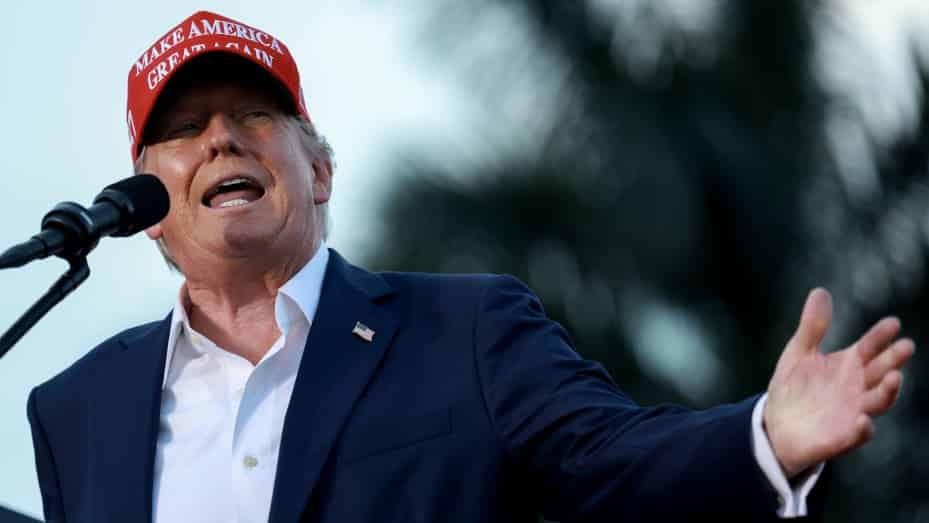
Meta has decided to lift the special restrictions on former President Donald Trump’s Facebook and Instagram accounts, aiming to provide an equal platform for all Presidential candidates as we head into the 2024 elections.
Trump’s Social Media Accounts Reinstated
Back in January 2023, Meta reinstated Trump’s social media profiles, but with stricter penalties than other users. Under these heightened rules, Trump risked a two-year ban for violating Meta’s community standards. Fast forward to now, Meta has announced that Trump will be subject to the same penalties as any other user on Facebook and Instagram.
The Standard Rules
So, what are these standard rules? For the average user, a violation of Facebook’s Community Standards starts with a warning. Accumulate two strikes, and you could be banned from certain posting features for a limited time. Seven violations get you a full-day posting ban, and ten strikes result in a month-long suspension.
“In assessing our responsibility to allow political expression, we believe that the American people should be able to hear from the nominees for President on the same basis,” Meta stated in their blog post.
The Original Ban
Trump’s initial ban came in the aftermath of the January 6 insurrection in 2021. At that time, Facebook was Trump’s go-to platform to connect with his supporters. CEO Mark Zuckerberg justified the ban by saying, “the risks of allowing the President to continue to use our service during this period are simply too great.” Since then, Trump has returned to Facebook, engaging his 34 million followers, but he’s now more active on his own platform, Truth Social.
Timing and Context
This rollback of penalties comes right before the 2024 Republican National Convention. Meta emphasized that the heightened suspension penalties were always intended for extreme situations and had not been used against Trump since their introduction.
Recent Developments
Earlier this week, Trump stirred the pot with a threatening post on Truth Social directed at Mark Zuckerberg. He vowed to imprison “election fraudsters” and referred to the Meta CEO as “Zuckerbucks,” adding a warning for Zuckerberg to “be careful.”
By lifting these special restrictions, Meta is positioning itself as a neutral platform for political discourse as we approach the next Presidential election. Whether this move will indeed level the playing field or stir further controversy remains to be seen.
READ ALSO: Meta Unveils Threads API for Developers: New Opportunities for Third-Party Integrations
Public Reaction and Implications
The public reaction to Meta’s decision has been mixed, to say the least. Supporters of Trump see this as a victory for free speech and political fairness. They argue that every candidate should have the same access to platforms that can significantly influence public opinion. On the other hand, critics are concerned about the potential for misinformation and incendiary rhetoric, especially given the tumultuous nature of Trump’s previous social media activity.
Meta’s Commitment to Fairness
Meta insists that this decision is about fairness and ensuring an equal playing field for all presidential candidates. The company reiterated that their primary goal is to facilitate open political discourse. By holding Trump to the same standards as any other user, Meta aims to show its commitment to impartiality and fair treatment.
“In a democratic society, it is crucial that candidates for public office are able to communicate their messages to the electorate,” Meta said. “Our updated policies reflect this commitment to a fair and open dialogue.”
The Bigger Picture
This move by Meta is part of a larger conversation about the role of social media in politics. Platforms like Facebook and Instagram have immense power in shaping public discourse and opinion. The rules and regulations they enforce can significantly impact the visibility and reach of political messages. By standardizing penalties, Meta is attempting to navigate the complex landscape of digital political engagement.
Challenges Ahead
Despite Meta’s intentions, the path forward is fraught with challenges. Monitoring and enforcing community standards on such a large scale is no small feat. The company will need to be vigilant in ensuring that all users, including high-profile political figures, adhere to the rules. There is also the ongoing debate about what constitutes free speech versus harmful rhetoric.
A New Era for Social Media?
As we approach the 2024 elections, all eyes will be on how Meta and other social media platforms handle the influx of political content. Will this move to equalize penalties create a more balanced environment, or will it lead to further polarization? Only time will tell.
Meta’s decision to lift special restrictions on Trump’s accounts marks a significant moment in the evolving relationship between social media and politics. As the landscape continues to change, one thing is certain: the role of platforms like Facebook and Instagram in shaping our political future is more crucial than ever.
By striving for fairness and open dialogue, Meta is setting the stage for a contentious and highly scrutinized election season. Whether this approach will be successful in promoting a healthy democratic process remains to be seen, but it is a step toward addressing the complex dynamics of modern political communication.
REVIEW: Google Pixel Watch 2 Review: The Perfect Blend of Fitbit and Google









Leave a Comment
You must be logged in to post a comment